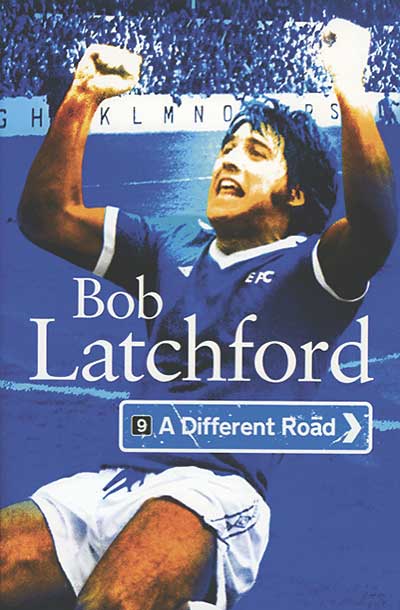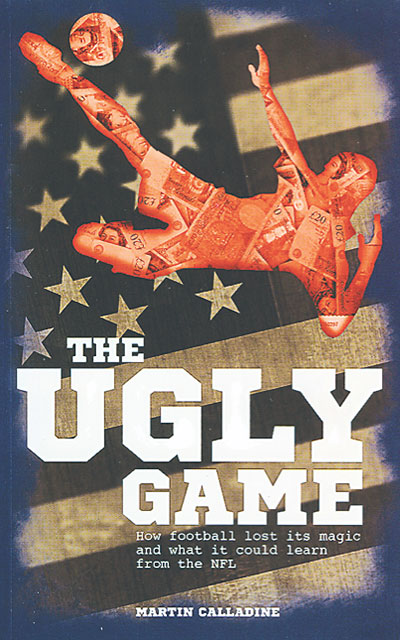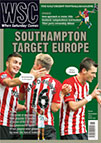Search: ' Swansea City'
Stories
Supporters were attending Etihad as neutrals after match against Oldham postponed
16 July ~ Millwall fans who were denied entry to the Etihad Stadium as neutrals have had their complaint upheld by the Independent Football Ombudsman (IFO). Nick Weavis and his group of friends had originally been planning to attend Millwall’s match at Oldham but, when it was cancelled, opted to watch nearby Manchester City play Swansea instead. However, upon learning they were Millwall fans the cashier at the Etihad refused to sell them tickets. When Weavis initially complained Manchester City put the decision down to police advice, but a freedom of information request to Greater Manchester Police revealed no such advice was given.
 by Bob Latchford
by Bob Latchford
deCoubertin Books, £20
Reviewed by Mark O’Brien
From WSC 348 February 2016
Perhaps to its detriment, but thoroughly in keeping with its subject, Bob Latchford’s thoughtful, detailed autobiography shies away from drama and sensationalism and tells the story of a modest, unassuming Birmingham boy who became the most expensive player in British football.
 How football lost its magic and what it could learn from the NFL
How football lost its magic and what it could learn from the NFL
by Martin Calladine
Pitch £12.99
Reviewed by Roger Titford
From WSC 341 July 2015
Martin Calladine is a disillusioned football fan who is going over to the ugly game that is American football. On his way out he offers observations on the differences between the two sports in 20 loosely connected short essays. He is an intelligent consumer of the sports, rather than a business insider or supporter activist, and brings some interesting perspectives to bear on the current failings of football. But The Ugly Game is not even a wish list, let alone a manifesto for change. There is no rigour in the comparisons; he uses the Premier League, English football and football in general interchangeably. The hugely differing structures and contexts that surround the NFL and Premier League are ignored. Calladine has a desirable destination in mind but no means of direction towards it.
The value of The Ugly Game is the fuel he provides for a more actively minded reformer. In particular there is a helpful analysis of what makes that curious billionaires’ socialist collective called the NFL tick. In entertaining fashion he unpicks the virtues of the salary cap, the draft transfer system, regulated ownership and the Rooney rule that enhances the chances of ethnic minority coaches. All of this helps to create a far more level playing field in the NFL than we see in the Premier League.
The concept of fairness is at the heart of Calladine’s thinking and he illustrates the lack of it and the need for it in apt ways. There is no prize money for winning the Superbowl but the cumulative effect of decades of prize money in the Champions League has distanced a few clubs from all the rest. Kids in the park having a pick-up game would never put all the best players on one side.
But there is more than one kind of fairness. There is no room in the NFL’s cartel of 32 clubs for a fast-rising Swansea, Hull City or Bournemouth. England and Wales support and give access to over 100 professional clubs for a population of 50 million, a sixth of the size of the US. While Calladine looks forward to more American football at Wembley he makes no reference to the, perhaps larger, trade going the other way – the strong and recent growth of soccer in the US.
There are strong chapters on the misuse of statistics and the weak analysis proffered by Alan Hansen and Alan Shearer compared with what US audiences receive and he has the occasional arresting phrase, such as “identikit tattooed greyhounds” to describe the modern footballer. Yet despite taking this high ground the whole work is disfigured by a peppering of snide asides about Pelé’s potency, Peter Beardsley’s looks, Titus Bramble’s brains and so on. Random photos with lame captions that drift like tumbleweed undermine what is an insightful work on fairness and power. One expects there will be more in this canon of “modern football is rubbish” from those freshly deserting the game. Indeed this is not the only football book with this title currently on sale.
 Huw Richards reviews Swansea City documentary Jack To A King, charting the club’s rise to the Premier League
Huw Richards reviews Swansea City documentary Jack To A King, charting the club’s rise to the Premier League
That the Swansea City film documentary Jack To A King briefly had a higher average score than perennial “best ever” The Shawshank Redemption on the IMDB film website is as statistically meaningful as the league tables newspapers insist on printing after one match. But approval from amateur reviewers and short extensions to planned runs in four west Wales cinemas suggests that JTAK – out on DVD and digitally in December – is a hit with its target audience, and with good reason.
It looks terrific, has big-screen production values and vividly recalls familiar scenes and stories. There is achingly evocative footage of the old Vetch Field and some great match action. The film-makers found compelling voices. James Thomas, whose goals kept the Swans in the league in 2003, is gently amiable while Leon Britton is engaging, observant and thoughtful. Fans of all clubs will recognise the feelings director Martin Morgan describes from the Championship play-off final against Reading, while fellow director David Morgan gives the narrative its emotional core.
The quality of those voices made it possible to dispense with traditional documentary props. There is no voiceover narrator or outside expert analysis – although the happy accident that fan Huw Bowen is also Professor of History at Swansea University enables some valuable perspective-setting – and no captions introducing speakers. This last may leave those not in the know a little puzzled at times.
Bookending Swansea’s recent history with the galvanising battle against unpopular owner Tony Petty in 2001 and promotion to the Premier League a decade later makes dramatic sense. Securing an interview with Petty was a coup, but his pleas in mitigation are outweighed by clear evidence that he was not, as asserted at the time, the only potential buyer and club employees recalling how they frantically hid cash whenever he was on the premises. To thank him – as executive producer Mal Pope has said some do – for the club’s subsequent rise is akin to crediting Andy Coulson for raising awareness of press intrusion.
One particularly memorable sequence recalls Petty’s sale of the club to the current owners, offering the compelling image of £20,000 in Tesco bags while leaving unexplained the logistics of extracting such a sum from cashpoints. The one real misjudgement is interviewing the “North Bank Alliance” opposition group in balaclava masks, making them look both nastier and far more serious than they ever were.
Fans of other clubs wanting to know what enabled Swansea’s new owners not only to survive, but prosper beyond all reasonable expectation, will find hints rather than exposition. But the film rightly identifies unpretentious chairman Huw Jenkins and, on the field, Roberto Martínez, as the key individuals along with the commercial transformation enabled by the move to the council-funded Liberty Stadium in 2005. Sequences in which Jenkins’ and Martínez’s parents talk of their contrasting sons and the crumbling Vetch is juxtaposed with the Liberty are particularly effective.
Imperatives to tell the story in 99 minutes and make it personal inevitably claim victims. Chronology is sometimes shaky – although starting with Dylan Thomas’s “To begin at the beginning” then going almost straight to the 2011 play-off final shows a certain chutzpah. Managers Kenny Jackett, credited elsewhere by Jenkins as a vital system builder, and Paulo Sousa disappear, although John Toshack, manager last time the Swans went from the fourth to the first, looms Hitchcockishly at Wembley. The main loser, paradoxically given the emphasis on fans as owners, are the Swans Supporters Trust. That they were already in existence and not, as the film implies, created in response to Petty is no minor detail. An established, if new, Trust played a far greater role than one improvised out of crisis could have done.
Similarly concentration on the personal histories of directors serves, presumably unintentionally, to marginalise the Trust. The end title referring to them still owning 20 per cent of the club looks a forlorn late gesture at redress, and could, without spoiling the story, have added that Swansea remain in the Premier League and won the League Cup in 2013. But if JTAK is shaky on some detail, it gets the big picture right – a retelling worthy of a remarkable story.
From WSC 333 November 2014